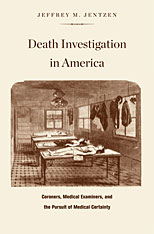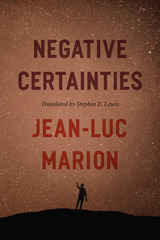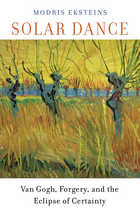
Certainty was first published in 1981. Minnesota Archive Editions uses digital technology to make long-unavailable books once again accessible, and are published unaltered from the original University of Minnesota Press editions.
Philosophers have traditionally used two strategies to refute the sceptical that empirical knowledge is not possible because our beliefs cannot be adequately justified. One strategy rejects the sceptics' position because it conflicts with the supposedly obvious claim that we do have knowledge. The other defends an analysis of knowledge limited to a weak set of necessary and sufficient conditions of knowledge or limited to a set of conditions specifically designed to be immune to sceptical attack.
In Certainty: A Refutation of Scepticism, Peter D. Klein uses a third strategy. He argues that scepticism can be refuted even if it is granted to the sceptics that knowledge entails absolute certainty. The argument for his thesis has two parts. He identifies the various types of scepticism and shows that the arguments for them depend upon epistemic principles which, when examined carefully, are unable to support the sceptical conclusions. Klein then argues — contrary to the views of most nonsceptics—that knowledge entails certainty and that some empirical beliefs are absolutely certain. In the course of his argument Klein develops and defends an account of justification, knowledge, and certainty. The result is a theory of knowledge based upon a model of justification designed to be acceptable to sceptics, nonsceptics, foundationalists, and coherentists.
A death occurs at home, in a hospital, on a street: why? As Jeffrey Jentzen reveals, we often never know. Why is the American system of death investigation so inconsistent and inadequate? What can the events of the assassination of President Kennedy, killing of Bobby Kennedy, and Chappaquiddick reveal about the state of death investigation?
If communities in early America had a coroner at all, he was politically appointed and poorly trained. As medicine became more sophisticated and the medical profession more confident, physicians struggled to establish a professionalized, physician-led system of death investigation. The conflict between them and the coroners, as well as politicians and law enforcement agencies, led to the patchwork of local laws and practices that persist to this day.
In this unique political and cultural history, Jentzen draws on archives, interviews, and his own career as a medical examiner to look at the way that a long-standing professional and political rivalry controls public medical knowledge and public health.

In Negative Certainties, renowned philosopher Jean-Luc Marion challenges some of the most fundamental assumptions we have developed about knowledge: that it is categorical, predicative, and positive. Following Descartes, Kant, and Heidegger, he looks toward our finitude and the limits of our reason. He asks an astonishingly simple—but profoundly provocative—question in order to open up an entirely new way of thinking about knowledge: Isn’t our uncertainty, our finitude, and rational limitations, one of the few things we can be certain about?
Marion shows how the assumption of knowledge as positive demands a reductive epistemology that disregards immeasurable or disorderly phenomena. He shows that we have experiences every day that have no identifiable causes or predictable reasons and that these constitute a very real knowledge—a knowledge of the limits of what can be known. Establishing this “negative certainty,” Marion applies it to four aporias, or issues of certain uncertainty: the definition of man; the nature of God; the unconditionality of the gift; and the unpredictability of events. Translated for the first time into English, Negative Certainties is an invigorating work of epistemological inquiry that will take a central place in Marion’s oeuvre.

In the poems of On Certainty, an unnamed woman in a strangely familiar dystopia narrates a story of power and decline, where the Tyrant has gained ascendency and the Philosopher is dying. Here, the Tyrant rules over a decimated ecology filled with android deer, burnt towns, and exhausted individuals dependent on virtual reality augmentation. In choosing whether to take the Philosopher’s place in a struggle against the Tyrant, the narrator must consider how her decision may perpetuate the currently existing catastrophic systems.
Weaving together speculative fiction, philosophical aphorism, lyric fragment, and documentary technique, On Certainty echoes the contemporary world that can feel simultaneously quotidian and strange.

In Modris Eksteins’s hands, the interlocking stories of Vincent van Gogh and art dealer Otto Wacker reveal the origins of the fundamental uncertainty that is the hallmark of the modern era. Through the lens of Wacker’s sensational 1932 trial in Berlin for selling fake Van Goghs, Eksteins offers a unique narrative of Weimar Germany, the rise of Hitler, and the replacement of nineteenth-century certitude with twentieth-century doubt.
Berlin after the Great War was a magnet for art and transgression. Among those it attracted was Otto Wacker, a young gay dancer turned art impresario. His sale of thirty-three forged Van Goghs and the ensuing scandal gave Van Gogh’s work unprecedented commercial value. It also called into question a world of defined values and standards that had already begun to erode during the war. Van Gogh emerged posthumously as a hero who rejected organized religion and other suspect sources of authority in favor of art. Self-pitying Germans saw in his biography a series of triumphs—over defeat, poverty, and meaninglessness—that spoke to them directly. Eksteins shows how the collapsing Weimar Republic that made Van Gogh famous and gave Wacker an opportunity for reinvention propelled a third misfit into the spotlight. Taking advantage of the void left by a gutted belief system, Hitler gained power by fashioning myths of mastery.
Filled with characters who delight and frighten, Solar Dance merges cultural and political history to show how upheavals of the early twentieth century gave rise to a search for authenticity and purpose.
READERS
Browse our collection.
PUBLISHERS
See BiblioVault's publisher services.
STUDENT SERVICES
Files for college accessibility offices.
UChicago Accessibility Resources
home | accessibility | search | about | contact us
BiblioVault ® 2001 - 2024
The University of Chicago Press









